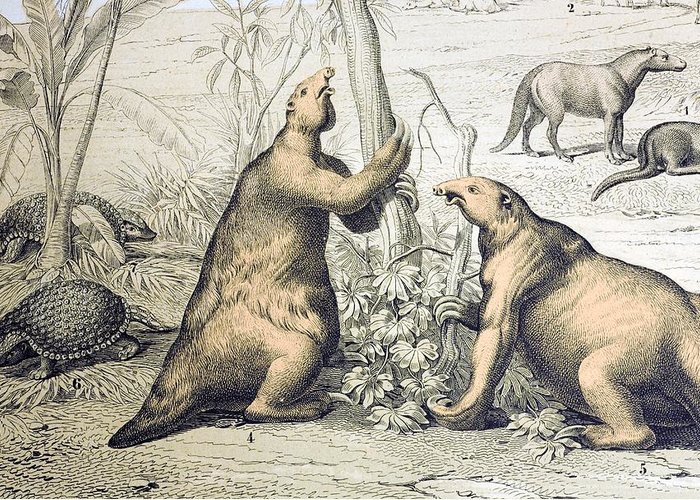(单词翻译:单击)
Some people think even greater surprises may await us. "A leading British ethno-biologist," wrote the Economist in 1995, "thinks a megatherium, a sort of giant ground sloth which may stand as high as a giraffe ... may lurk in the fastnesses of the Amazon basin." Perhaps significantly, the ethnobiologist wasn't named; perhaps even more significantly, nothing more has been heard of him or his giant sloth. No one, however, can categorically say that no such thing is there until every jungly glade has been investigated, and we are a long way from achieving that.
有的人认为,更令人吃惊的事还在等着我们。“一位著名的英国民族生物学家认为,”《经济学家》杂志l995年写道,“有一种高如长颈鹿的大地懒,有可能出没在亚马孙河流域僻静的丛林里。”也许有意思的是,杂志没有提到该民族生物学家的名字;也许更有意思的是,此后再也没有他的音信,也再也没有那种大地懒的音信。然而,在调查过每一片林中空地之前,谁也不敢肯定说那里没有这种动物,而我们距离实现那个目标还很遥远。
But even if we groomed thousands of fieldworkers and dispatched them to the farthest corners of the world, it would not be effort enough, for wherever life can be, it is. Life's extraordinary fecundity is amazing, even gratifying, but also problematic. To survey it all, you would have to turn over every rock, sift through the litter on every forest floor, sieve unimaginable quantities of sand and dirt, climb into every forest canopy, and devise much more efficient ways to examine the seas. Even then you would overlook whole ecosystems. In the 1980s, spelunkers entered a deep cave in Romania that had been sealed off from the outside world for a long but unknown period and found thirty-three species of insects and other small creatures — spiders, centipedes, lice — all blind, colorless, and new to science.
但是,即使我们培养出几千名野外考察工作者,把他们派到天涯海角,这可能还不够,因为凡是能有生命的地方都有生命。生命的极其丰富的程度是令人惊讶的,更是令人满意的,但也是问题众多的。若要统统考察一遍,你得翻转每一块岩石,过滤每一片森林地面上的垃圾,筛掉无数沙子和泥土,深入每一个丛林地带,想出有效得多的办法来调查海洋。即使那样你还会漏掉整个生态体系。20世纪80年代,业余洞穴探索者们钻进罗马尼亚一个已经跟外界隔绝很久而又不知道多深的深洞,发现了33种昆虫和别的小动物——蜘蛛啦,蜈蚣啦,虱子啦——全都是瞎眼的,无色的,科学界不知道的。


